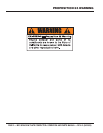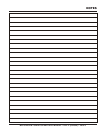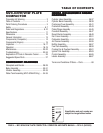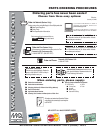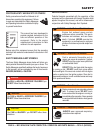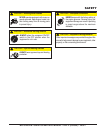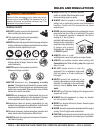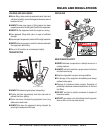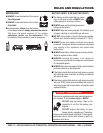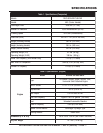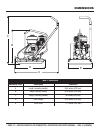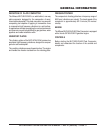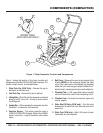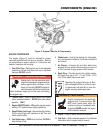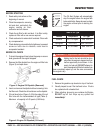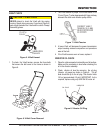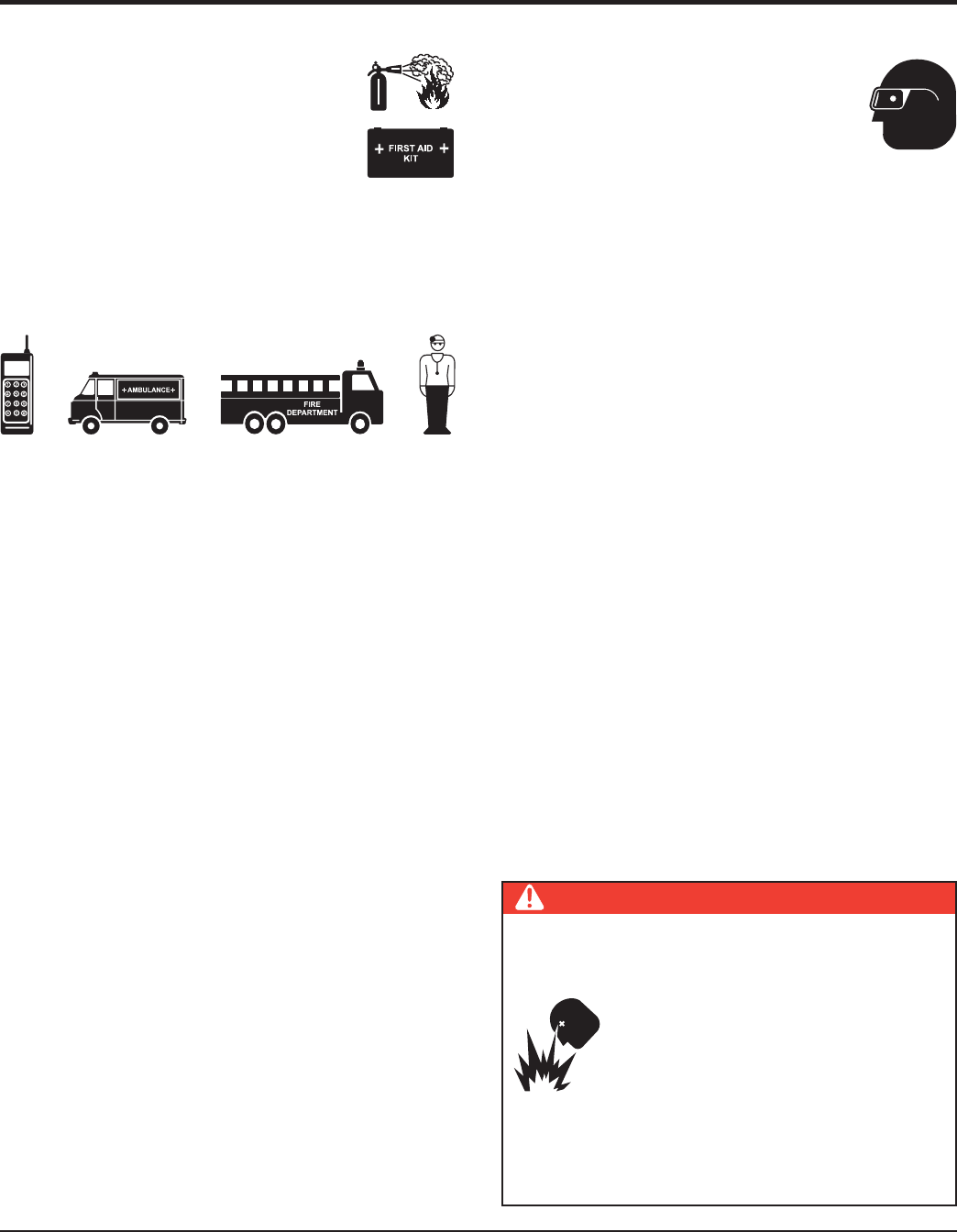
PAGE 10 — MVC-82VH/VHW PLATE COMPACTOR • OPERATION AND PARTS MANUAL — REV. #1 (04/25/08)
EMERGENCIES
ALWAYS know the location of the nearest
fire extinguisher
.
ALWAYS know the location of the nearest
first aid kit
.
In emergencies,
always
know the location
of the nearest phone or
keep a phone on the job site
.
Also know the phone numbers of the nearest
ambulance
,
doctor
and
fire department
. This
information will be invaluable in case of emergency.
BATTERY SAFETY (FOR ELECTRIC START)
■
The battery contains acids that can cause
injury to the eyes and skin. ALWAYS wear
safety glasses to avoid eye irritation.
■
ALWAYS wear well-insulated gloves when
picking up the battery.
■
ALWAYS keep the battery charged. If the battery is not
charged, a buildup of combustible gas will occur.
■
DO NOT charge battery if frozen. Battery can explode.
When frozen, warm the battery to at least 61° F (16° C).
■
ALWAYS make sure battery terminals are properly
connected. Inadequate battery connections may cause
poor starting of the equipment and create othe
r
malfunctions.
■
ALWAYS keep battery cables in good working condition.
Repair or replace all worn cables.
■
ALWAYS recharge the battery in an vented air
environment, to avoid risk of a dangerous concentration
of combustible gases.
■
ALWAYS disconnect the negative battery terminal before
performing service on the equipment.
■
If the battery liquid (dilute sulfuric acid) comes in contact
with clothing or skin, rinse skin or clothing immediately
with plenty of water.
■
If the battery liquid (dilute sulfuric acid) comes in contact
with your EYES, rinse eyes immediately with plenty of
water and contact the nearest doctor or hospital to see
k
medical attention.
DANGER — Explosion Hazards
The risk of an explosion exists when performing service
on the battery. To avoid
severe injury
or
DEATH:
DO NOT drop the battery. There is the
possibility of risk that the battery may
explode.
DO NOT expose the battery to open
flames, sparks, cigarettes, etc. The battery
contains combustible gases and liquids. If these gases
and liquids come in contact with a flame or spark, an
explosion could occur.
RULES AND REGULATIONS



